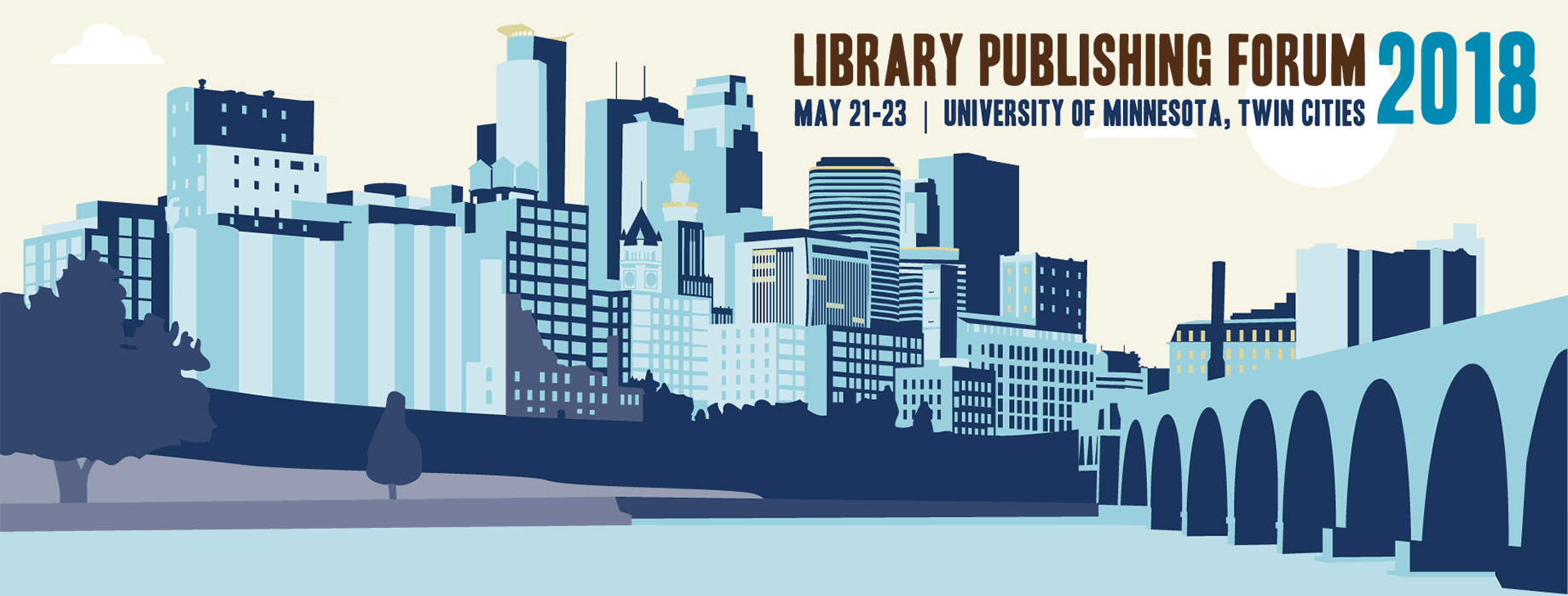Tuesday, May 22, 11:15am-12:15pm
Room: Ski-U-Mah Room
Library and Societies as Publishing Partners
Suzanne Stapleton, University of Florida George A. Smathers Libraries
Description: In 2012, the University of Florida George A. Smathers Libraries expanded support of scholarly publishing through the Public Knowledge Project’s Open Journal System, locally named Florida Online Journals (Florida OJ), and entered into Memorandums of Understandings with a number of external scholarly organizations. Academic society publishers in the United States serve to disseminate scholarly information to specialized research communities. “The fundamental mission of the university library for the past few centuries has been to facilitate long-term, reliable access to the cultural and scholarly record by collecting, organizing, and preserving the materials that it contains” (Courant & Jones, 2015), but new technologies offer libraries today a chance to expand beyond content organization and provide greater support of the publishing lifecycle. This type of support is appealing to small society publishers as they struggle to survive as the scholarly publishing system transforms. Societies working with the library to publish serials include the Association for Tropical Lepidoptera, American Institute for Chemical Engineers and the Florida State Horticultural Society. Although each society presents a unique situation with particular reasons for adopting Florida OJ, all are interested in increasing discoverability and accessibility of digital scholarly content. In this presentation, we will share why society publishers are eager to migrate to Florida OJ, provide details of what services the library provides and challenges faced by these partnerships.
Coalition Publi.ca : A Canadian Initiative for a Sustainable Publishing Environment in HSS
Emilie Paquin and Élise Bergeron, Érudit.org
Description: University-based open access book publishing, as a symbiotic creative collaboration between students, faculty, librarians, authors, and a publisher with shared interests yet different skills and resources, is an easily adaptable model that serves multiple purposes: (a) to provide a university-based OA publishing option for scholars who want a high-quality editorial and design experience, which places a premium on the author’s vision, and values experimentation and accessibility; (b) to present an alternative career path for PhDs interested in working in public, mission-driven scholarly communications; and (c) to provide undergraduates with an interdisciplinary, experiential, and skills-based experience.
A University Library and a Scholarly Society Walk Into a Bar… Leveraging Open-Source Technologies Together to Help Researchers Tell a More Textured Story About Their Work
Nicky Agate, Columbia University
Description: How might scholarly societies, libraries, and other nonprofit partners work together towards an expansive vision of scholarly communication outreach and dissemination that goes beyond institutional and national boundaries?
The Modern Language Association, with the aid of an NEH ODH Implementation Grant, has been collaborating with Columbia University Libraries on CORE, or the Commons Open Repository Exchange, since 2015. The repository at the heart of Humanities Commons, CORE facilitates the open-access distribution, discussion, and citation of the many products of humanities research, including pre- or postprints, conference presentations, data sets, and learning objects such as syllabi and slide decks. What makes CORE stand out, however, is its social facet—its embeddedness in the social functionality of the 12,000-member strong Humanities Commons network.
Nicky Agate will discuss the process of building and refining the repository and what both the MLA and Columbia University Libraries have learned—and continue to learn—from one another. She will propose CORE as a case study in the potential for scholarly societies, libraries, and other nonprofit entities to work together towards more useful (and more used) open-access repositories.
